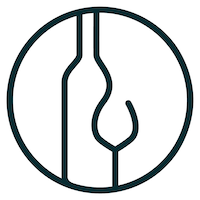
What is the difference between the Culinary and Hotel Management streams of the SIT50422 Diploma of Hospitality Management?
Firstly, let’s look at who the courses are aimed at. Both are aimed at aspiring hospitality professionals who are wanting to take on senior roles in the industry. The courses combine advanced hospitality skills and managerial expertise, which gives graduates the skills they need to coordinate and oversee hospitality operations in many venues and sectors, such as restaurants, hotels, motels, cafes and catering services.
Students who graduate from these courses are equipped to work as a leader of teams, such as small business managers and departmental managers where operation decisions need to be made. These roles often require that Australian legislation and industry standards are thoroughly understood so that compliance is ensured. Areas for specialisation are accommodation, food and beverage, cookery and gaming.
Now let’s have a look at how the two streams differ, what they focus on and career options after graduating.
Diploma of Hospitality Management (Culinary)
This stream focuses on having culinary skills as well as management skills. It is suited to those who want to be involved in managing kitchens, catering companies or food service departments in hotels or restaurants.
The culinary skills taught are food preparation, menu planning, kitchen management, and food safety.
The management skills taught are business operations, staff management, and hospitality-specific business decision-making.
Students who complete this stream often pursue roles as head chefs, executive chefs or kitchen managers, in restaurants, cafés, catering businesses, or any venue with food service.
Diploma of Hospitality Management (Hotel Management)
This stream focuses on managing areas that are broader than culinary service, such as managing front office operations, food and beverage service, event planning and guest services.
The management skills taught are leadership, accommodation management, front-office operations, guest relations, budgeting, staff supervision, compliance with industry standards and revenue management.
Students who complete this stream often go on to work as restaurant managers, departmental managers, or small business managers in hotels, resorts, motels, and other accommodation-based facilities.
With either stream, the SIT50422 Diploma of Hospitality Management serves as a comprehensive qualification, equipping graduates with versatile skills to pursue a wide range of leadership opportunities across the hospitality industry.
For further details, visit our International Student section of the Complete Hospitality Training website for Diploma of Hospitality Management (SIT50422) – Culinary Steam or Diploma of Hospitality Management (SIT50422) – Hotel Management Stream.
To apply, head to Expression of Interest – Complete Hospitality Training.





